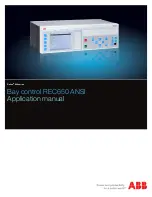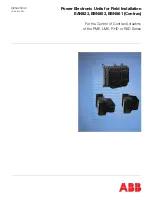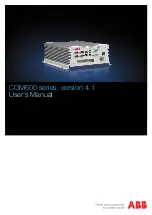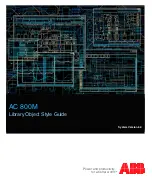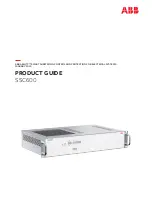
MAXEON
SOLAR
TECHNOLOGIES,
LTD.
537620
Rev.B
©2021
Maxeon
Solar
Technologies,
Ltd.
All
rights
reserved.
Specifications
included
in
this
document
are
subject
to
change
without
notice.
5
5.1
Site
Considerations
AC
Module
should
only
be
mounted
in
locations
that
meet
the
following
requirements:
Maximum
Altitude
:
AC
Modules
can
be
installed
in
locations
with
a
maximum
of
2000
meter
altitude.
Operating
Temperature:
AC
Modules
must
be
mounted
in
environments
that
ensure
that
the
modules
will
operate
within
the
following
maximum
and
minimum
temperatures:
Max.
Operating
Cell
Temp.
+85°C
Max.
Operating
microinverter
Temp.
+
60°C
Max.
AC
Module
Ambient
Temp.
+50°C
Min.
AC
Module
Operating
Temp.
−
40°C
Design
Strength:
AC
Modules
are
designed
to
meet
a
maximum
positive
(or
upward,
e.g.
wind)
and
negative
(or
downward,
e.g.
static
load)
design
pressure
when
mounted
in
the
mounting
configurations
specified
in
Table
1
and
2
for
the
details
on
load
ratings
and
mounting
locations.
AC
Modules
have
also
been
evaluated
to
IEC
61215
for
a
positive
or
negative
design
load
of
3600
Pa
with
a
1.5
Safety
Factor.
When
mounting
modules
in
snow
‐
prone
or
high
‐
wind
environments,
special
care
should
be
taken
to
mount
the
modules
in
a
manner
that
provides
sufficient
design
strength
while
meeting
local
code
requirements.
Important!
The
following
image
and
tables
show
where
to
mount
in
module
frame
and
the
allowable
load
ratings
corresponding
to
the
mounting
zones
chosen.
To
use
the
tables,
identify
the
two
mounting
zones
in
which
you
wish
to
mount.
You
may
choose
to
mount
at
any
location
in
zones
A,
B,
and
C,
as
long
as
the
mounting
points
are
symmetric
about
one
axis
of
the
module.
Identify
the
combination
of
mounting
zones
you
have
chosen
in
the
table
and
then
refer
to
the
corresponding
load
rating.
Note
also
that
load
ratings
are
different
for
modules
supported
by
rails;
versus
systems
that
attach
modules
underneath
the
module
frame
or
without
rail
support.
Fig.1
With
Rail
Support
Fig.2
Without
Rail
Support
Table
1.
Test
Load
Ratings
Test
Load
FOS=1.1
Load
Rating
(Pa)
Bolt
Top
Clamp
Rail
Supported
w/o
Rail
Support*
Rail
Supported
w/o
Rail
Support*
Mounting
Zone
1
Mounting
Zone
2
Wind
(up
and
down)/
Snow
(down)
B
B
5400/9000
5400/5400
4100/8100
3600/5400
C
C
4200/4200
4200/3600
2600/3600
2400/2400
A
A
3000/4500
3000/3000
2400/3600
2400/2400
A
B
2600/4200
2400/2400
2400/2400
2400/2400
A
C
3000/4500
3000/3000
2400/3600
2400/2400
D
D
DO
NOT
MOUNT
*
Without
Rail
support
means
end
mounted
in
long
or
short
side
frame.
See
Figure
2
Table
2.
Design
Load
Ratings
Design
Load
FOS=1.5
Load
Rating
(Pa)
Bolt
Top
Clamp
Rail
Supported
w/o
Rail
Support*
Rail
Supported
w/o
Rail
Support*
Mounting
Zone
1
Mounting
Zone
2
Wind
(up
and
down)/
Snow
(down)
B
B
3600/6000
3600/3600
2700/5400
2400/3600
C
C
2800/2800
2800/2400
1700/1600
1600/1600
A
A
2000/3000
2000/2000
1600/2400
1600/1600
A
B
1700/2800
1600/1600
1600/1600
1600/1600
A
C
2000/3000
2000/2000
1600/2400
1600/1600
D
D
DO
NOT
MOUNT
*
Without
Rail
support
means
end
mounted
in
long
or
short
side
frame.
See
Figure
2
Additional
Authorized
Operating
Environments:
Modules
can
be
mounted
in
the
following
aggressive
environment
according
to
the
test
limits
mentioned
below:
Salt
mist
corrosion
testing:
IEC
61701
Severity
6
Ammonia
Corrosion
Resistance:
IEC
62716
Concentration:
6,667
ppm
Excluded
Operating
Environments
Certain
operating
environments
are
not
recommended
for
Maxeon
Solar
AC
modules,
and
are
excluded
from
the
Maxeon
Solar
Technologies
Limited
Warranty
for
these
modules.
Maxeon’s
modules
should
not
be
mounted
a
site
where
it
may
be
subject
to
direct
contact
with
salt
water,
or
other
aggressive
environment.
Maxeon’s
modules
should
not
be
installed
near
flammable
liquids,
gases,
or
locations
with
hazardous
materials;
or
moving
vehicles
of
any
type.





















